S’s involvement in Female Soundscape project came at a time when she was about to leave Hong Kong, after working for some time, she decided to quit her job and come to Hong Kong alone to pursue her studies. We initially met from online social media platform, she used to be a reporter so she’s really interested in our project. After inviting S to participate in the Soundwalk activity, she chose two routes that were closely related to her. One is the school nearby where she studied in Hong Kong (The Hong Kong University of Science and Technology), and the other is a path at Ci Shan Monastery in Tai Po, Hong Kong.
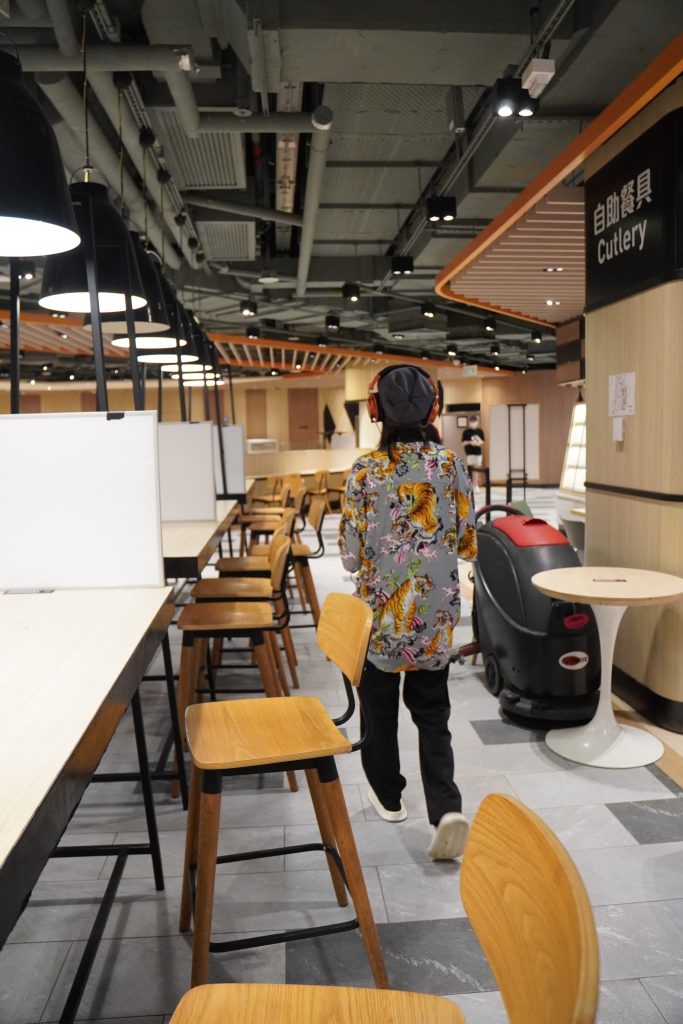
The Hong Kong University of Science and Technology (HKUST) is located at seaside, the weather we went out that day was cloudy and rainy, all the buildings seemed to be covered with a layer of grey shield. As soon as I met S, she led me to the school’s canteen, saying that she often ate here. In the canteen, she turned on the recorder we provided and walked around to the canteen, listened to the sounds there. “A spectator of the world” was her exclamation after the process, as she silently watched and observed everything around her during the sound walk, “there are sounds of the canteen’s aunties collecting plates, the diners speaking in Cantonese, and I felt that each sound around me was amplified”. S said that she didn’t really like the sound of the canteen, she had never noticed the sound environment here was so noisy, also the sounds here doesn’t make much sense to her.

Immediately after that S took me to the beach at HKUST, she said that her favourite place at school was the beach and that it always gave her a very peaceful feeling. She said she heard the sound of leaves rubbing against each other and the sound of waves, which helped her go back to the time that brought her to Hong Kong in the first place. “My classmates and I would sneak over the railings before and sit and talk closest to the sea like high school students.” The sound of the sea not only calms her, it also reminds her of her childhood, her grandma.
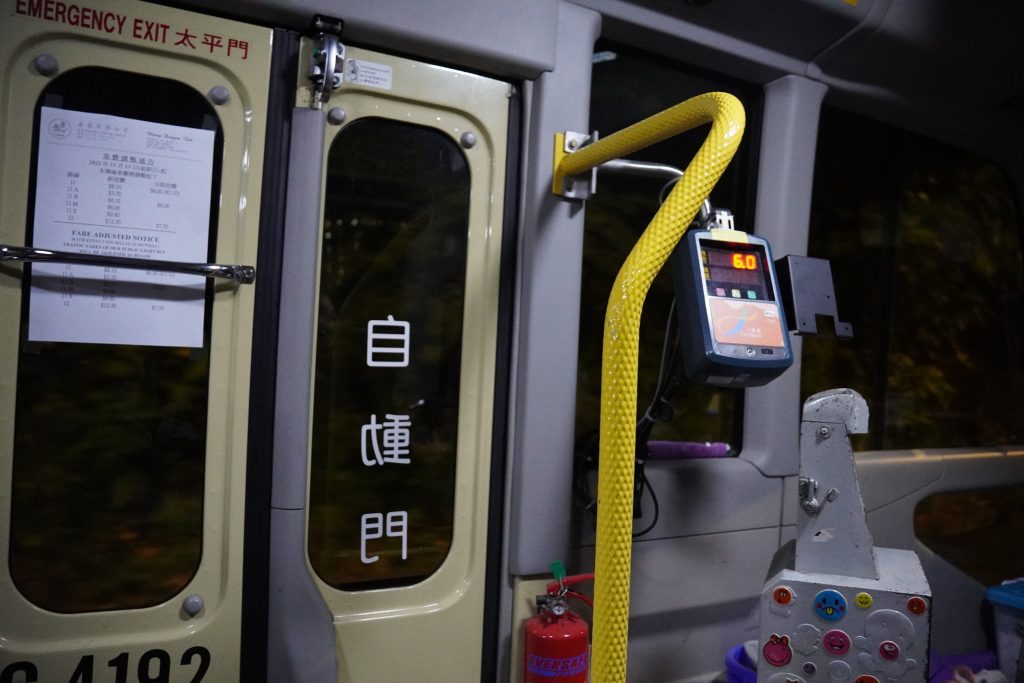
On the way back, S took me on a minibus from the school back to her place of residence. She said that the minibus driver often played songs from the last century, such as the singer she was very familiar with, Teresa Teng, and coincidentally, the minibus we were on was playing Teresa Teng’s songs. During the journey, we overheard a dialogue between a teacher and a student sitting in front of us, talking about the difference in property prices and wages between the Mainland and Hong Kong, and they talked about their feelings of living in Hong Kong for so many years. When we got off the bus, Teresa Teng’s “Wishing for a Long Life” was playing on the bus, which touched S— who was about to leave Hong Kong.
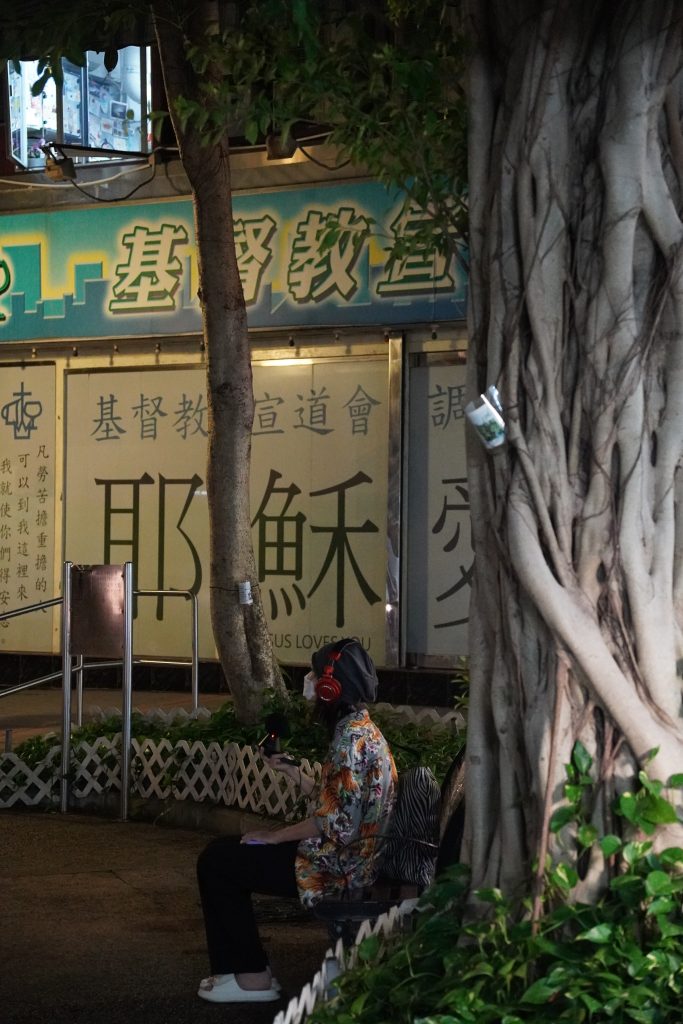
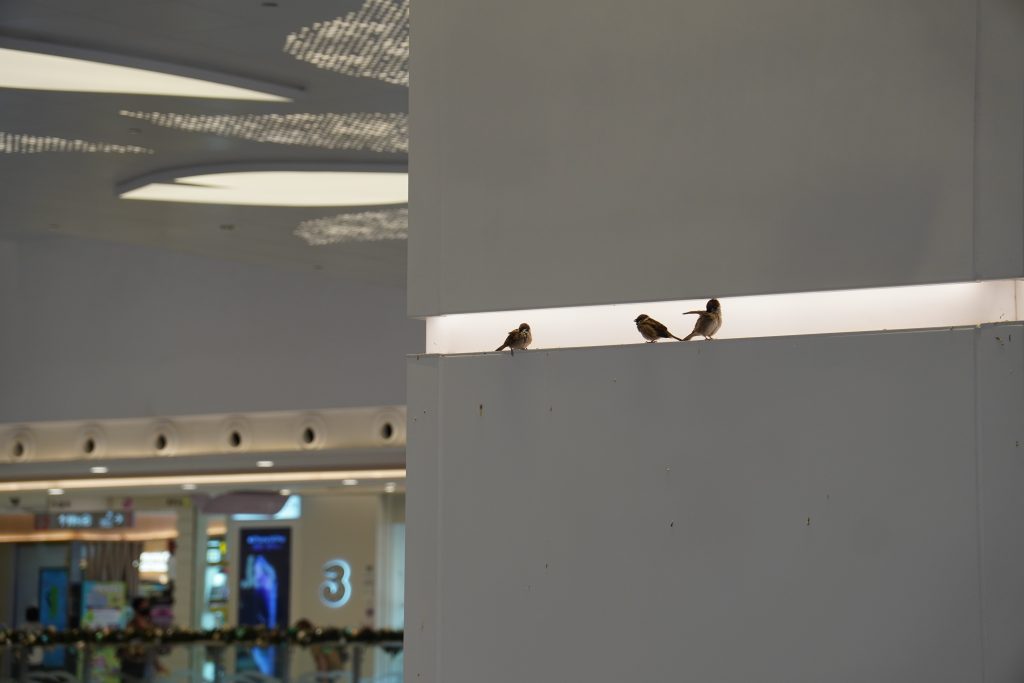
Immediately after that, S led me to the downstairs of the neighbourhood where she lives, and she said that this bench is where she usually lets off steam and sits for a night. She said she grew up in the countryside, “I like to listen to the wind, look at the stars, and watch the sky”, and that S has infinite fantasies about sound itself. After arriving at the nearby East Point City (a shopping mall), the sound environment became very noisy. This is the mall where she usually moves around the most, and inadvertently, she stopped in front of an air-conditioning unit for a long time with her tape recorder. She said, “The sound of this air-conditioner is really small, and I have recorded it for a long time”. Most of the air-conditioners in Hong Kong are old-fashioned air-conditioners, and the noise they make is very noisy, and I myself am often disturbed by the sound of air-conditioners. The sound of birds chirping in this shopping mall attracted our attention at the same time. In such a commercialised environment, there are quite a number of compartments and empty spaces on the top floor for the birds to rest their feet, and the harmony between business and nature is reflected in this place.
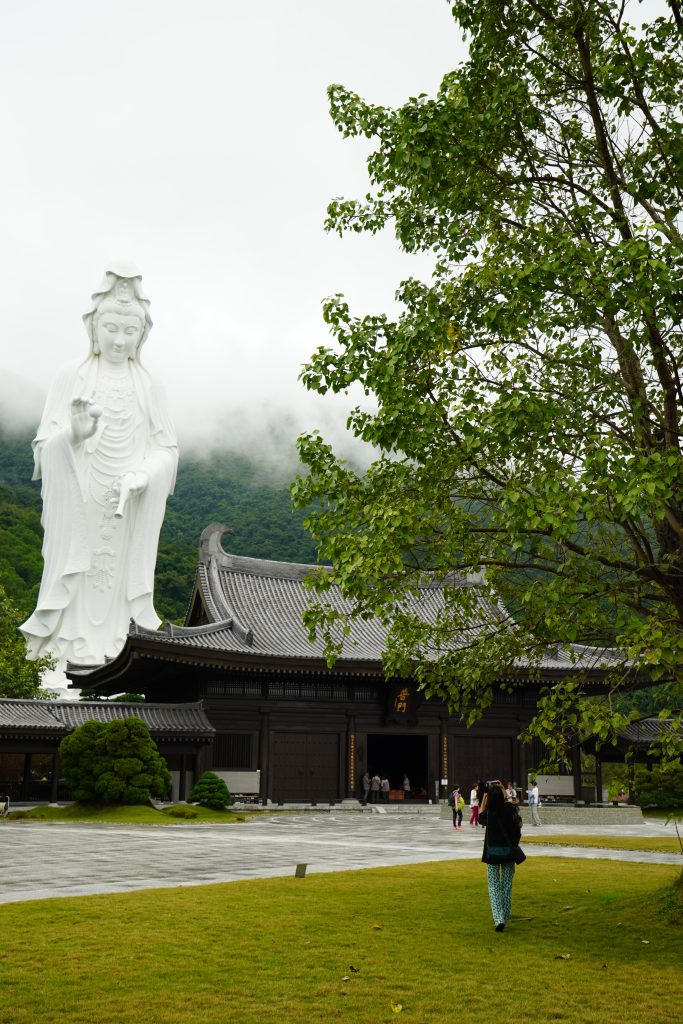
The next day, led by S, we went to the Cishan Temple in Tai Po. Cishan Temple is a Buddhist temple located in Tai Po. S said that this place can only be booked once with one ID card, and it is her favourite place in Hong Kong, “In this fast-paced big city of Hong Kong, it’s really rare to find a place where I can calm down and get away from the hustle and bustle of the city, and learn some knowledge related to Buddhism” S said that this place S said that the atmosphere of this place allows her to abandon all worldly thoughts and feel the equality of all beings, who are all just mortals on a pilgrimage. Walking in Cishan Temple, S chose to take off her monitors and use her human ears to experience the surrounding sound environment for this sound walk. She said that this time she felt the surrounding sound environment with her heart and found that there were many different elements around her. During the walk, she met a group of tourists who were listening to an explanation led by a guide, and was impressed by the sound of footsteps “going up” (climbing stairs), and when she focused on her sense of hearing, the word “worship” appeared in her mind, “pilgrimage”. When it was raining, we took turns to scoop up holy water and offer it to the gods and buddhas, and copied scriptures. The sound of the water from the fountain, the rubbing of the paper, the sound of the stamps, the sound of the rain dripping down on the eaves, all helped to calm our restless hearts. s also emphasised that she hears more sounds on rainy days than on sunny days, and that her auditory senses are amplified further with the change in her listening habits and in the weather.
While listening back to the recording, she said that she did not notice that the sound environment around her was so noisy at that time, and that she would notice some sounds that she had not noticed before, and was able to distinguish the differences in the sounds more carefully, such as the direction (the consistency of the direction of the wind sound and the sound of water on the seashore), and the texture of the ground (when her feet stepped on the ground with water/without water). She mentions that in the recording on the minibus, the dialogue recorded by chance conveys the arrogance of the woman speaking who is living in Hong Kong, and that emotions and thoughts are heard in the voice. “Voices can convey meaning and carry a lot of information that was never noticed before, to be able to understand how a blind person reads information in this world.” S used to be a journalist and her ability to capture the details of life always leaves me in awe. Now that she has returned to the mainland to pursue her ideal life, I am grateful to her for leaving her unique vocal imprint on Hong Kong.